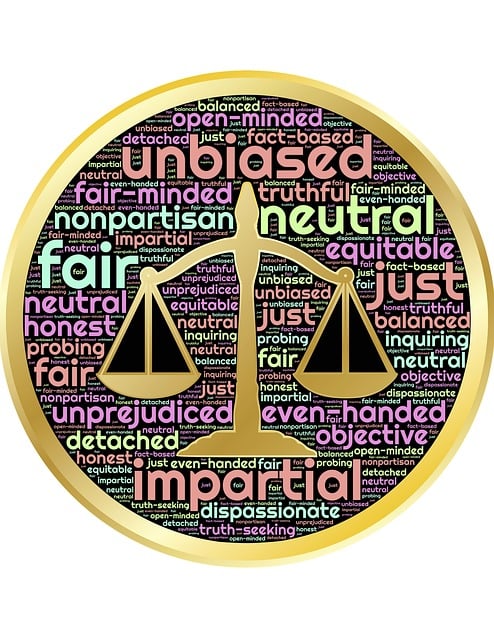Securities scams pose significant threats to investors, markets, and businesses, with common tactics including Ponzi schemes and false promises of high returns. To combat these scams, heightened vigilance and stringent legal measures are crucial. Jury selection in financial fraud cases faces unique challenges, particularly in finding impartial individuals who understand complex schemes. Overcoming these challenges requires effective jury education and engagement, using interactive methods to ensure full comprehension among jurors with diverse learning preferences. High-profile cases offer valuable lessons for prosecutors and defense attorneys, demonstrating the importance of understanding perpetrators' psychology and employing successful communication strategies during jury selection.
In the complex world of finance, securities scams pose a significant threat to investors. This article delves into the insidious tactics employed by fraudsters, exploring common schemes and their devastating impact on victims. We dissect the intricate challenges faced during jury selection in financial fraud cases, highlighting the need for effective jury education and engagement strategies. Through compelling case studies, we illuminate successes and valuable lessons learned from recent trials, offering insights to strengthen defenses against these evolving scams.
- Understanding Securities Scams: Common Schemes and Their Impact
- The Challenges of Jury Selection in Financial Fraud Cases
- Strategies for Effective Jury Education and Engagement
- Case Studies: Successes and Lessons Learned from Recent Trials
Understanding Securities Scams: Common Schemes and Their Impact

Securities scams are a significant challenge in the financial world, often leaving investors with substantial losses and a broken trust in the market. Understanding these schemes is crucial to fortifying individuals and organizations against such fraudulent activities. Common tactics include Ponzi schemes, where early investors receive returns from later investments, creating an unsustainable cycle; pump-and-dump scams, where stock prices are artificially inflated through deception; and false promises of guaranteed high returns.
These scams have severe implications, not just for individual investors but also for the overall stability of financial markets. The impact extends to respective businesses as well, with legitimate companies suffering from the erosion of public confidence and the potential for regulatory scrutiny. An unprecedented track record of successful scams can lead to a climate of fear and caution among participants, hindering innovation and fair competition. Avoiding indictment in such cases becomes a top priority for those involved, underscoring the need for heightened vigilance and stringent legal measures.
The Challenges of Jury Selection in Financial Fraud Cases

The process of jury selection in financial fraud cases presents a unique set of challenges that can significantly impact the outcome of the trial. One of the primary difficulties lies in finding individuals who possess both the knowledge and impartiality required to evaluate complex financial schemes. Given the intricate nature of securities scams, prospective jurors must have a basic understanding of investment principles and market dynamics to grasp the nuances of the case. This is particularly demanding when addressing frauds that involve sophisticated techniques or span across multiple jurisdictions.
Moreover, ensuring an unbiased jury is crucial in cases involving high-profile defendants from influential sectors such as corporate and individual clients, as well as those with ties to the philanthropic and political communities. The potential for pre-existing biases or public perception to influence their decision-making process requires careful consideration during the selection phase. Judges often employ rigorous questioning techniques and thoughtful challenges to identify and dismiss jurors who may not be able to set aside their preconceptions, thereby aiming for a panel that can render a just verdict based solely on the evidence presented in court.
Strategies for Effective Jury Education and Engagement

Effective jury education and engagement are crucial strategies to overcome the challenges faced during jury selection in high-stakes cases, particularly for white-collar defense attorneys. The process requires a delicate balance between providing jurors with sufficient information to understand the complexities of the case and avoiding overwhelming or misinforming them. Jurors must grasp the intricate details, especially in financial or legal disputes, where nuances can significantly impact the outcome.
Attorneys and judges play a pivotal role in guiding jurors through these complex matters, ensuring they remain engaged. Interactive methods, such as demonstrations, real-life examples, and clear, concise explanations, can help simplify technical concepts. By adapting communication styles to diverse learning preferences, attorneys can ensure every juror has the opportunity to comprehend the case fully. This approach fosters a more informed jury, leading to better decision-making in high-pressure situations.
Case Studies: Successes and Lessons Learned from Recent Trials

In recent years, several high-profile securities scams have been brought to light, leading to significant legal battles and valuable lessons for both prosecutors and defense attorneys. These case studies offer a unique perspective on navigating complex financial crimes, with a focus on the challenges faced during jury selection and the strategies employed to achieve successful outcomes. One notable example involves a large-scale Ponzi scheme where the defendant, a well-respected financier, was accused of defrauding investors out of millions. The defense team’s thorough screening process during jury selection proved crucial in identifying potential biases and ensuring a fair trial.
The case highlighted the importance of understanding the psychology of white-collar and economic crimes perpetrators, as well as their victims. By presenting compelling evidence and employing effective communication strategies, the defense secured a winning challenging defense verdict, demonstrating that even high-profile corporate and individual clients can receive justice when faced with such intricate financial manipulations. These trials serve as a reminder that while securing convictions is a significant achievement, learning from each case to improve legal strategies and protect investors remains paramount in the ongoing battle against securities scams.
In navigating the complex landscape of securities fraud trials, understanding common scams and their impact is only half the battle. The real challenge lies in the intricacies of jury selection, where prospective jurors bring a diverse range of financial knowledge and perspectives. Overcoming these challenges requires strategic jury education and engagement to ensure impartiality and informed decision-making. By examining recent trial successes and lessons learned, we can enhance our approach to jury selection, ultimately strengthening the integrity of securities scam prosecutions and protecting investors in today’s digital era.






